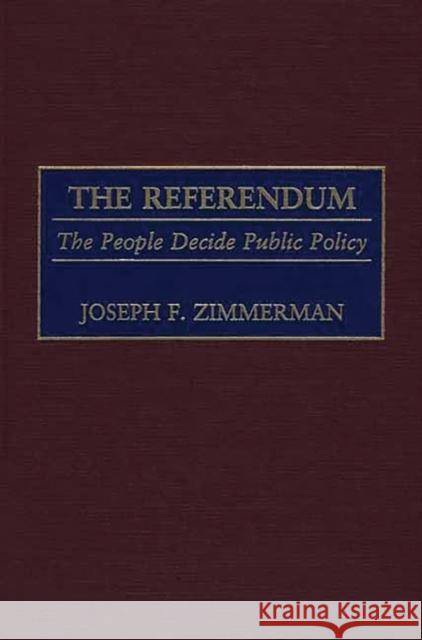The Referendum: The People Decide Public Policy » książka
The Referendum: The People Decide Public Policy
ISBN-13: 9780275971427 / Angielski / Twarda / 2001 / 344 str.
The referendum first became established with voter ratification of the Massachusetts Constitution in 1780. Other types were adopted in the nineteenth century, largely through the efforts of Progressives and Populists seeking to authorize voters to utilize the initiative-referendum and protest referendum. Certain referenda, particularly on adoption or amendment of constitutions and local government charters, are well established and non-controversial. Other referenda, the general initiative-referendum and the protest referendum, have been controversial since their inception. Zimmerman analyzes a number of general initiative and protest referendum campaigns in order to develop conclusions as to their desirability and the need for reform.
Experience with the various types of referenda reveal the need for the development of a general theory of their use, combining elements of the theory of representative democracy based on the leadership-feedback model and the theory of direct democracy based upon decision making by assembled voters. Referenda experience also reveals that certain types of referenda would be unnecessary if each state government devolved broad powers to general purpose local government. Zimmerman's analysis of the development of the 16 types of referenda and their attributes and defects will be a major resource for scholars, students, policy makers, and the general public interested in issues of local and state government effectiveness and accountability.











